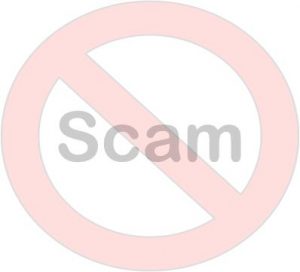Free tools, tips and links from SPR on writing and selling your book
Print on Demand vs. Print Run Publishing

It’s a very tactile experience picking up a book, leafing through it, and finally making a decision to buy the book. A book is an […]
Free tools, tips and links from SPR on writing and selling your book

It’s a very tactile experience picking up a book, leafing through it, and finally making a decision to buy the book. A book is an […]
 This article isn’t going to be about non-fiction ebook marketing, as these ebooks will be marketed along different channels, depending on the niche that the ebook covers. Many non-fiction ebooks are related to marketing itself: Marketing Secrets Revealed! While this is a valid way to make money online and is an extremely low cost way to distribute a book (free, short of design and hosting), it is a different process to market an ebook to fiction readers.
This article isn’t going to be about non-fiction ebook marketing, as these ebooks will be marketed along different channels, depending on the niche that the ebook covers. Many non-fiction ebooks are related to marketing itself: Marketing Secrets Revealed! While this is a valid way to make money online and is an extremely low cost way to distribute a book (free, short of design and hosting), it is a different process to market an ebook to fiction readers.
For one thing, many non-fiction ebooks are overloaded with affiliate links. In this way, they’re not much different from a website. So whenever […]

Note: Technically, a […]

 Getting book reviews is one of the harder parts of self-publishing – and truth be told getting a lot of book reviews by no means guarantees book sales (unless it’s an Oprah review, which isn’t going to happen). However, it can be gratifying, so long as the reviews are good, and instructive if they’re not. It’s important to keep in mind that even if you publish a book with a traditional small press it will likely be up to you to bring in reviews and interviews, so it is a good skill set to have for any writer.
Getting book reviews is one of the harder parts of self-publishing – and truth be told getting a lot of book reviews by no means guarantees book sales (unless it’s an Oprah review, which isn’t going to happen). However, it can be gratifying, so long as the reviews are good, and instructive if they’re not. It’s important to keep in mind that even if you publish a book with a traditional small press it will likely be up to you to bring in reviews and interviews, so it is a good skill set to have for any writer.
There are […]
 Is there a difference between vanity publishing and self-publishing? Yes and no. Sometimes vanity publishing and self-publishing are interchangeable – especially when self-publishing is discussed with derision. The concept of vanity publishing – that an author is so vain that he or she must release a book despite it not finding a publisher – should be discarded. Because the publishing industry is so competitive and so driven by the market, there are plenty of books that don’t get bought by publishing houses but have every right to find readers. At the same time, the basic definition of the vanity press […]
Is there a difference between vanity publishing and self-publishing? Yes and no. Sometimes vanity publishing and self-publishing are interchangeable – especially when self-publishing is discussed with derision. The concept of vanity publishing – that an author is so vain that he or she must release a book despite it not finding a publisher – should be discarded. Because the publishing industry is so competitive and so driven by the market, there are plenty of books that don’t get bought by publishing houses but have every right to find readers. At the same time, the basic definition of the vanity press […]

Advantages to Self-Publishing
Creative control. This isn’t only an issue about the editorial process, but even as you set out to […]
 One of the major issues with self-publishing is the quality of the book design. A great number of self-published books make it glaringly obvious that the book has been self-published. This is significant because it can lead to a book being ignored by reviewers or prospective buyers. The cliché “You can’t judge a book by its cover” never took into account self-published titles.
One of the major issues with self-publishing is the quality of the book design. A great number of self-published books make it glaringly obvious that the book has been self-published. This is significant because it can lead to a book being ignored by reviewers or prospective buyers. The cliché “You can’t judge a book by its cover” never took into account self-published titles.
If you have a professionally designed book it will be much easier to gain reviews. A tip: if you set your own imprint with its own name and have a well-designed book cover, a prospective reviewer will […]